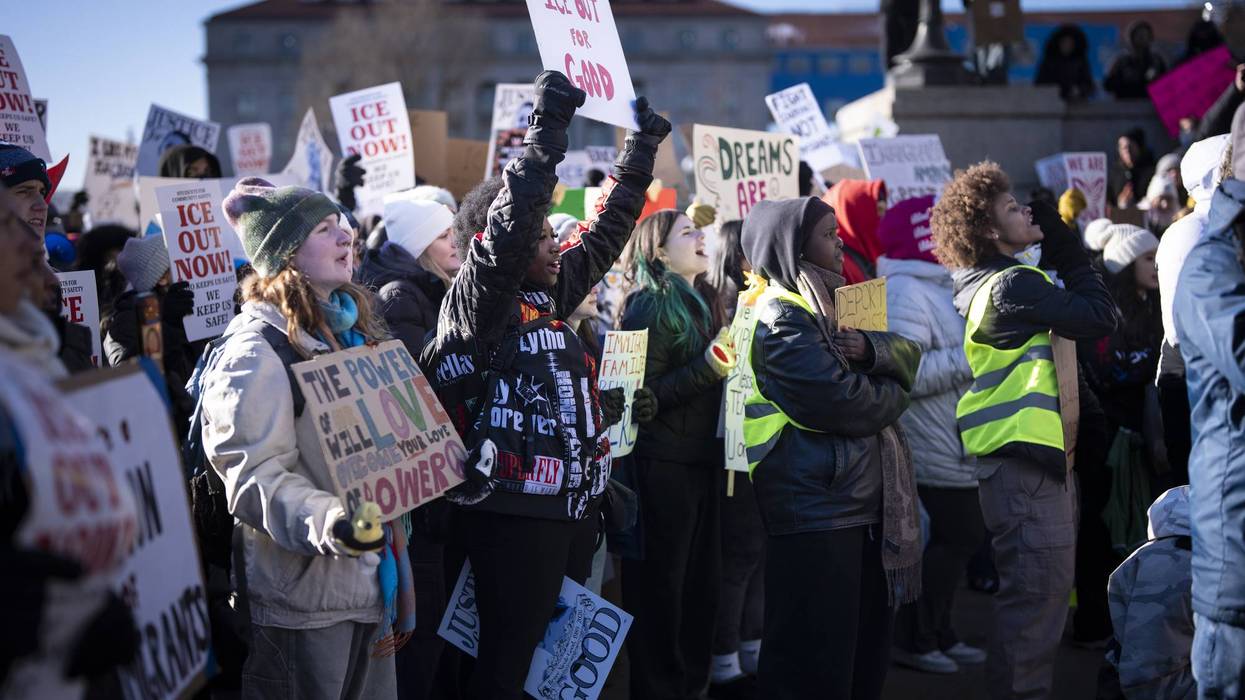Polling Shows Dems Have the Backing to Fight Trump on ICE—Will They Use It?
One thing is for certain: If the Democrats fail to end some of ICE’s most flagrant abuses, it will not be because a lack of political support for their positions.
National polling released by Quinnipiac University on February 4 shows that just over three out of four voters (78%) say that they have seen the shooting of Alex Pretti in Minneapolis by federal immigration agents. Sixty-two percent say that the shooting was not justified, 22% say justified, and 16% are not sure. A 94% majority of Democrats see the Pretti shooting as unjustified as do 2 out of 3 (66%) Independent voters. Republicans offer a more split position (55% justified, 20% not justified, and 25% say they do not know).
Voters also strongly feel (61%) that the Trump administration has not given an honest account of the shooting of Pretti. Just 1 of 4 voters (25%) think that the Trump administration has given an honest account of the Pretti shooting. It is important to note that President Donald Trump does not receiving a ringing endorsement from Republicans (60% honest, 19% not honest, and 21% not sure). Not surprisingly Democrats (93% not honest) see the Trump administration as dishonest as do just under two-thirds (65%) of Independent voters.
The Quinnipiac University research also shows there is widespread discontent with Immigration and Customs Enforcement. Fully 63% disapprove of the way ICE is enforcing immigration laws, while just over 1 in 3 (34%) approve and 4% are not sure. GOP support for ICE is quite strong but not overwhelming (77% approve). Democratic opposition to ICE is close to unanimous (97% disapprove). Independent voters are extremely critical of ICE (28% approve, 68% disapprove).
The Quinnipiac University data shows that Democrats have the political—and moral—high ground to win significant concessions about how ICE operates from Trump and the Republicans.
What must be most concerning for the Trump administration, 60% support the recent protests against ICE. Just under 2 out of 3 Independents (65%) support the anti-ICE protests. Furthermore, 56% believe that the Trump administration has deployed ICE to Minneapolis for political purposes as compared with legitimate law enforcement purposes. Independent voters strongly see Trump’s deployment of ICE to Minneapolis as a political stunt (61% political, 31% law enforcement).
Over the next two weeks, Democrats will have an opportunity to demand concessions from their GOP counterparts and President Trump as they wrangle over future appropriations for the Department of Homeland Security. The Quinnipiac University data shows that Democrats have the political—and moral—high ground to win significant concessions about how ICE operates from Trump and the Republicans. We can only hope that they have the political spine to reign in ICE. One thing is for certain: If the Democrats fail to end some of ICE’s most flagrant abuses, it will not be because a lack of political support for their positions. It will simply be because they lack the will to fight for what they know is right.


